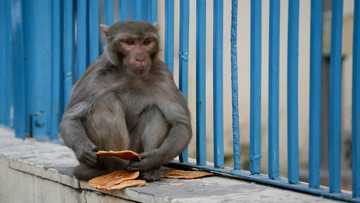First strike in six decades closes famous Japan department store

Source: AFP
The shutters were down on one of Japan's best-known department stores on Thursday in the sector's first strike for six decades, sparked by fears that its mooted new US owner will slash jobs.
The Seibu in Tokyo's Ikebukuro district attracts around 70 million visitors a year to its 14 floors, where its ultra-polite staff sell everything from sushi to Armani seven days a week.
Sitting atop one of the world's busiest railway stations, it is the jewel in the crown in the Sogo and Seibu chain of 10 department stores owned by Seven & i Holdings around Japan.
However, the 83-year-old building in Ikebukuro needs renovation and the chain has not made a profit for five years, so Seven & i wants to sell it to US investment group Fortress.
But unions, fearing job cuts, called a one-day stoppage for Thursday -- the first by Japanese department store workers since 1962.
"At this point, the union is not convinced if the sale plan is based on business continuity and the plan ensures keeping workers' jobs," union chief Yasuhiro Teraoka told reporters earlier this week.
The stoppage is so rare that it has made national headlines, with Japanese television journalists broadcasting live outside while a news helicopter filmed from overhead.
"I think the strike is groundbreaking," pensioner Susumu Aso, 68, told AFP, in front of the black shutters that have come down in front of the normally bustling building's windows.
"I'm so interested so I took a two-hour train ride to see it. I think it will have a great impact nationally."
Japan's department stores have struggled in recent years to adapt their seemingly antiquated business models to 21st-century consumers' shopping habits.
Michael Causton, co-founder of research firm JapanConsuming, said the number of department stores has tumbled from 311 in 1999 to 181, and some of those now operate as shopping malls or hybrids.
New feature: Сheck out news that is picked for YOU ➡️ click on “Recommended for you” and enjoy!
Source: AFP


